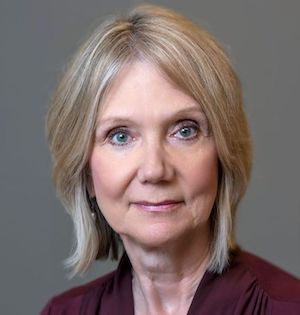A conversation with Rambur on the federal health policy was published on WalletHub’s website
Professor Betty Rambur, the University of Rhode Island College of Nursing’s Routhier Endowed Chair for Practice, recently sat down with WalletHub for a conversation on Medicaid expansion.
The following conversation with Rambur, who specializes in healthcare finance and public health policy, was published in a national article on WalletHub’s website:
What are the major benefits and drawbacks of the Medicaid expansion?
The major benefit is that more American’s have access to health insurance. It is important to recognize that uninsured people nevertheless have health care needs, and the cost of uncompensated care is shifted to the premiums paid by those with commercial insurance. Economists sometimes call this a “hidden tax.” So, there is a sound economic rationale for ensuring coverage. There is also evidence that Medicaid expansion slowed rates of health declines for low-income individuals, including those with previously established access to safety-net care. In other words, Medicaid access matters, can prevent the progression of an illness, and save lives.
When states expand Medicaid, that expansion receives a 90/10 federal/state match. That is, states put a very small amount of their own funds toward that expansion. We see citizens pushing for Medicaid expansion through ballot initiatives when their politicians are reluctant to do so. Medicaid covers one in five Americans and funds over 50% of long-term care, so it is a vital resource for many of our most vulnerable citizens. Children represent four in ten Medicaid enrollees; elders and those with disabilities represent about one in four. Medicaid expansion has also increased access to mental health care for previously uninsured low-income adults. Given the extraordinary and critical impact on the neediest in our society, it is hard to justify withholding access to the health insurance that Medicaid provides.
Nationally, there are two million poor uninsured adults that fall into the “coverage gap” resulting from state decisions not to expand Medicaid. What are the best options to consider for an individual that does not qualify for Medicaid?
This is exactly what the health insurance exchanges were designed to address. The cuts to the subsidies that were to provide financial support to those who still cannot afford health insurance are therefore problematic. Some states are exploring or implementing a public option to help support affordability and stability in the individual insurance market. A statewide, sponsored public option could potentially provide a new mechanism to access health insurance for people who cannot access it in other ways. But regardless of the form of coverage, health insurance is expensive in the U.S. because our health care system is too expensive, and our health outcomes are not in alignment with the costs. Our prices are so much higher than other nations. We use a lot of low-value care. Until we address the underlying cost of care problem — inclusive of our high prices, waste in the system, and low-value care — we are going to continue to have an affordability crisis.
In a recent study, Medicaid expansion has been shown to improve access to care, affordability of care, and financial security among the low-income population; however, 12 states are currently not expanding Medicaid. What measures can local authorities take to ensure healthcare access for the vulnerable population?
Support of safety net services like Federally Qualified Health Centers, which includes Community Health Centers and Rural Health Clinics, is one avenue. Another is the support of Free Clinics, which are largely staffed by volunteers. The latter can provide some services, but there will still be gaps in care, especially specialty services. Also, any systems reliant on volunteers will face challenges of availability and consistency in the delivery of services.
Given the fact that a growing number of states seek to establish work requirements in their Medicaid programs, what is your opinion on this matter and how does it affect the disadvantaged population?
On the surface, it may only seem logical that there are some conditions for accessing Medicaid coverage, but recall that Medicaid disproportionately covers those in long-term care, children, and people with disabilities. Most analyses suggest that conditions for participation will have a little practical impact and may create circumstances in which people cycle in and out of coverage. The practicality and fairness of work requirements become even more complicated in this area of COVID-induced furloughs, lay-offs, and general economic downturn. Then layer in homeschooling and caregiving responsibilities. According to the Kaiser Family Foundation, even before COVID, caregiving responsibilities were the primary reason Medicaid eligible adults were not working. Over two-thirds of Medicaid beneficiaries receive their care in risk-based managed care organizations. In other words, there is accountability for the cost and outcomes of care.
Are states that have expanded Medicaid better positioned against COVID-19 and a recession?
There is data that supports this. To some extent, Medicare and Medicaid are policy responses to the unintended consequences of employer-based health insurance. When coverage is linked to employment status, those who are not working do not have an easy way to access health insurance and Medicare and Medicaid were designed to address that gap. The final verdict on the number of people who will have lost their employer-based health insurance during the pandemic is not yet in; early estimates were 16-27 million people, while later estimates (January 2021) are 7-14 million. Either way, it is a lot of people.
Moreover, there is evidence that states that expanded Medicaid were indeed in a better position than those that did not because they had lower rates of uninsured people. In general, uninsured people may be reluctant to get tested for COVID or access treatment, which creates public health challenges for everyone. It has also been estimated that 650,000 frontline or essential workers would have been eligible for Medicaid if all states had expanded Medicaid. As a society, we need our frontline and essential workers to be safe.

